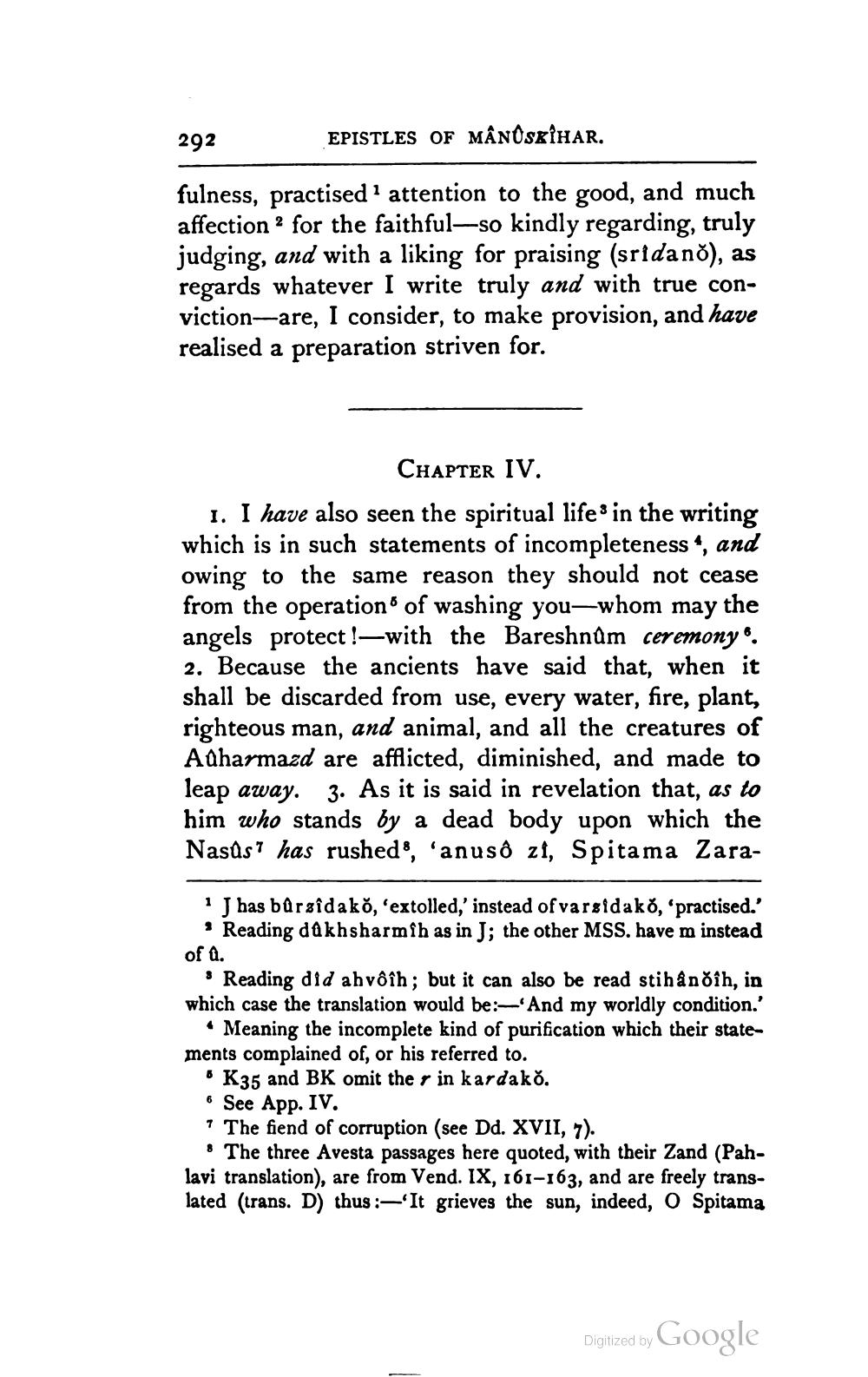________________
EPISTLES OF MANÛSKIHAR.
fulness, practised' attention to the good, and much affection for the faithful-so kindly regarding, truly judging, and with a liking for praising (sridano), as regards whatever I write truly and with true conviction are, I consider, to make provision, and have realised a preparation striven for.
292
CHAPTER IV.
1. I have also seen the spiritual life' in the writing which is in such statements of incompleteness, and owing to the same reason they should not cease from the operation of washing you-whom may the angels protect!-with the Bareshnûm ceremony ®. 2. Because the ancients have said that, when it shall be discarded from use, every water, fire, plant, righteous man, and animal, and all the creatures of Atharmazd are afflicted, diminished, and made to leap away. 3. As it is said in revelation that, as to him who stands by a dead body upon which the Nasus has rushed', 'anusô zi, Spitama Zara
1
J has bûrzîdako, 'extolled,' instead of varzidako, 'practised.' • Reading dakhsharmîh as in J; the other MSS. have m instead of û.
Reading did ahvôîh; but it can also be read stihânŏîh, in which case the translation would be:-'And my worldly condition.' Meaning the incomplete kind of purification which their statements complained of, or his referred to.
K35 and BK omit the r in kardakŏ.
• See App. IV.
7 The fiend of corruption (see Dd. XVII, 7).
The three Avesta passages here quoted, with their Zand (Pahlavi translation), are from Vend. IX, 161-163, and are freely translated (trans. D) thus:-'It grieves the sun, indeed, O Spitama
Digitized by
Google




